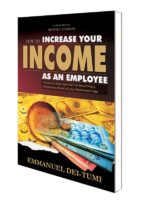Could this Nigerian investment and business model save Africa?

Could this Nigerian investment and business model save Africa?
May 25, 2021 2 comments
For many people, the desire to attain financial independence and unexpected life mishaps that lead to emergencies drive them into saving and investment or an argument of the need to do so.
For instance, in the face of a medical emergency or a business taking a nosedive due to lack of cash flow, many people tend to look back at how wasteful they have been and start to rethink how to be more frugal and in order to break that dangerous trend.
Recommended article: Saving and Investment: Valuable lessons from Asians
Such stories of regret were rife when the coronavirus pandemic hit the world, resulting in massive job losses and business revenue. Financial independence, no doubt, is one important goal an individual must strive to attain in life.
In southeastern Nigeria, a fantastic apprenticeship system is precisely doing that- helping thousands of people to start sustainable small and medium-sized enterprises.
The Igbos, the predominant ethnic group in the region, started many years ago, an Igbo apprenticeship system (IAS), an enterprising communal framework where successful businesses develop others and provide capital to mentees.
At the core of this system is a philosophy of shared prosperity where most community members are participants and not onlookers, contrary to what seems to be the norm in many societies.
For centuries, the Igbo nation, in their business dealings, remind themselves of this long-kept secret, “onye aghala nwanne ya,” which means, “none should leave his or her brethren behind,”.
The result of this systems is that a business takes in people who do not only work for salary but are also mentored in entrepreneurship. This way, the mentee gets the capital, and skills to start, manage and grow a business, thereby addressing the core challenges that African SMEs face.
But importantly, the community at large is the winner of this model as many people are driven into entrepreneurship after getting hands-on skills that make business survival almost certain. In the end, massive jobs and home-grown services and products are produced to improve the wellbeing of the people.
This explains why the Igbos make an impressive contribution of about 80 per cent to the Nigerian economy.
There are so many prominent businesses that have sprung out of this model, including Innocent Chukwuma, the founder of Innoson Motors, the largest indigenous automobile manufacturing company by sales in Africa and Ifeanyi Ubah, owner of Capital Oil & Gas, one of the largest private fuel depots in Africa,
As we have often advised, it is entrepreneurship that will create jobs for Africans. And when decent jobs are created, the well-being of those employed changes. This is a model that you can adopt and adapt depending on your circumstance.
Recommended article: Five top strategies for SMEs growth and sustainability
It does not profit you to be the only successful person in education and wealth while your kinsmen and community wallow in poverty. If you have the ability, hold, lift and mentor others for the benefit of your community.
The Igbo model may not be problem-free, but there are many positive lessons to be learnt for the benefit of the continent.
This is the time to revisit the South African concept of Ubuntu – a part of Zulu phrase “Umuntu ngumuntu ngabantu”, which literally translates as a person is a person through other people.
An old traditional concept that carries a fairly broad English meaning of “a quality that includes the essential human virtues of compassion and humanity”.
Let’s all work together to change the narratives of Africa, one community at a time.
RECENT ARTICLES
[rev_slider alias=”slider-1″][/rev_slider]











